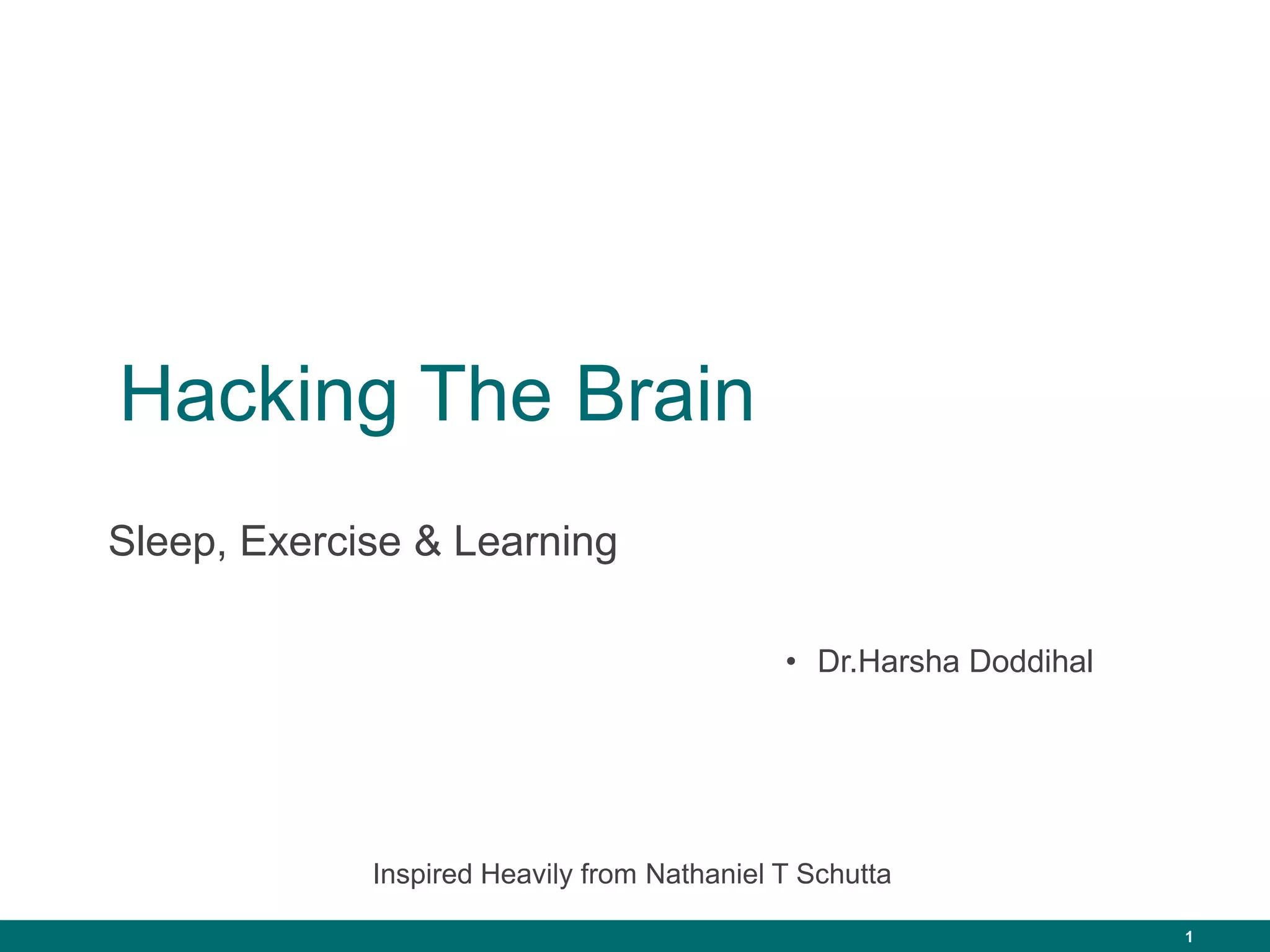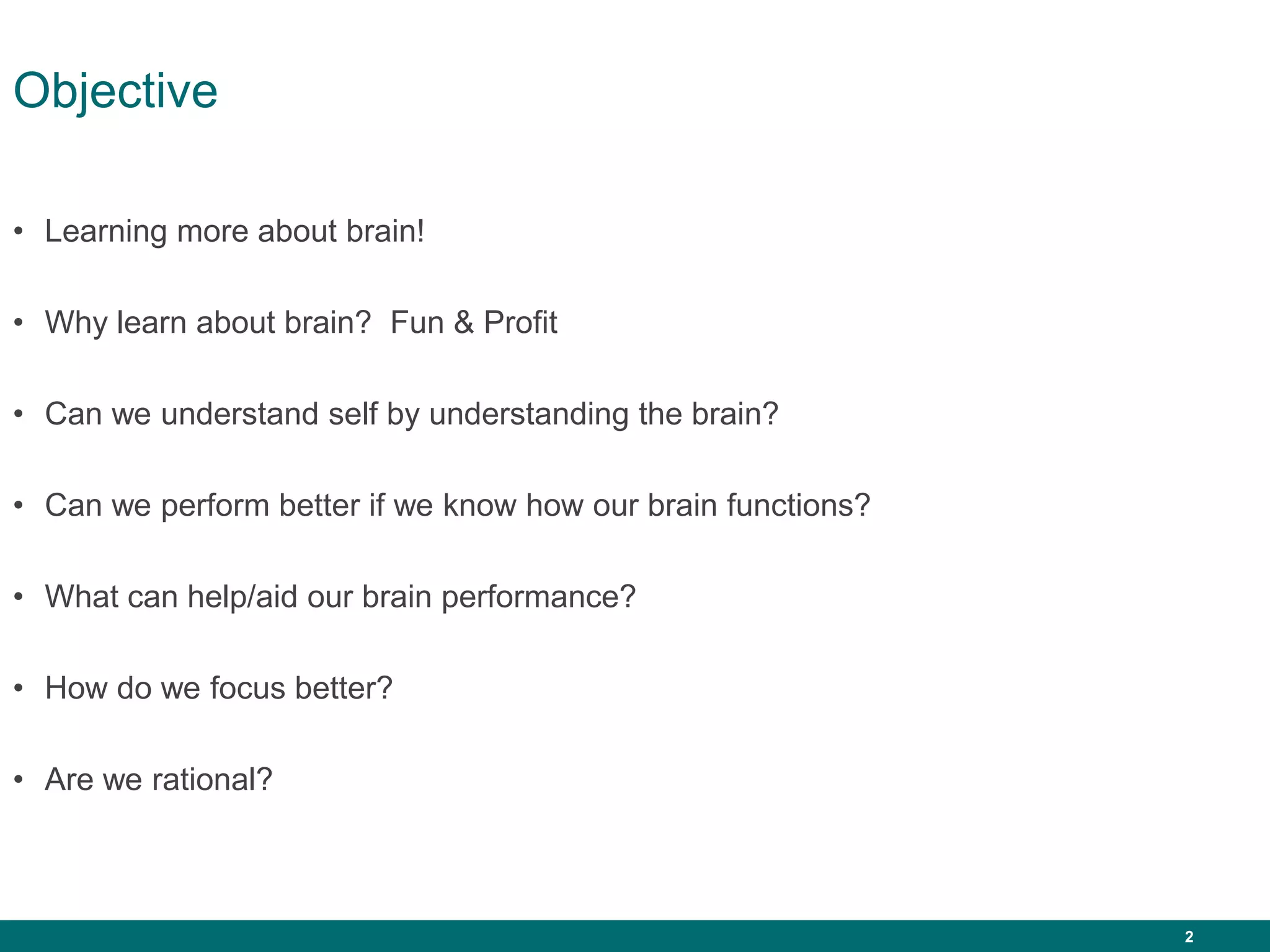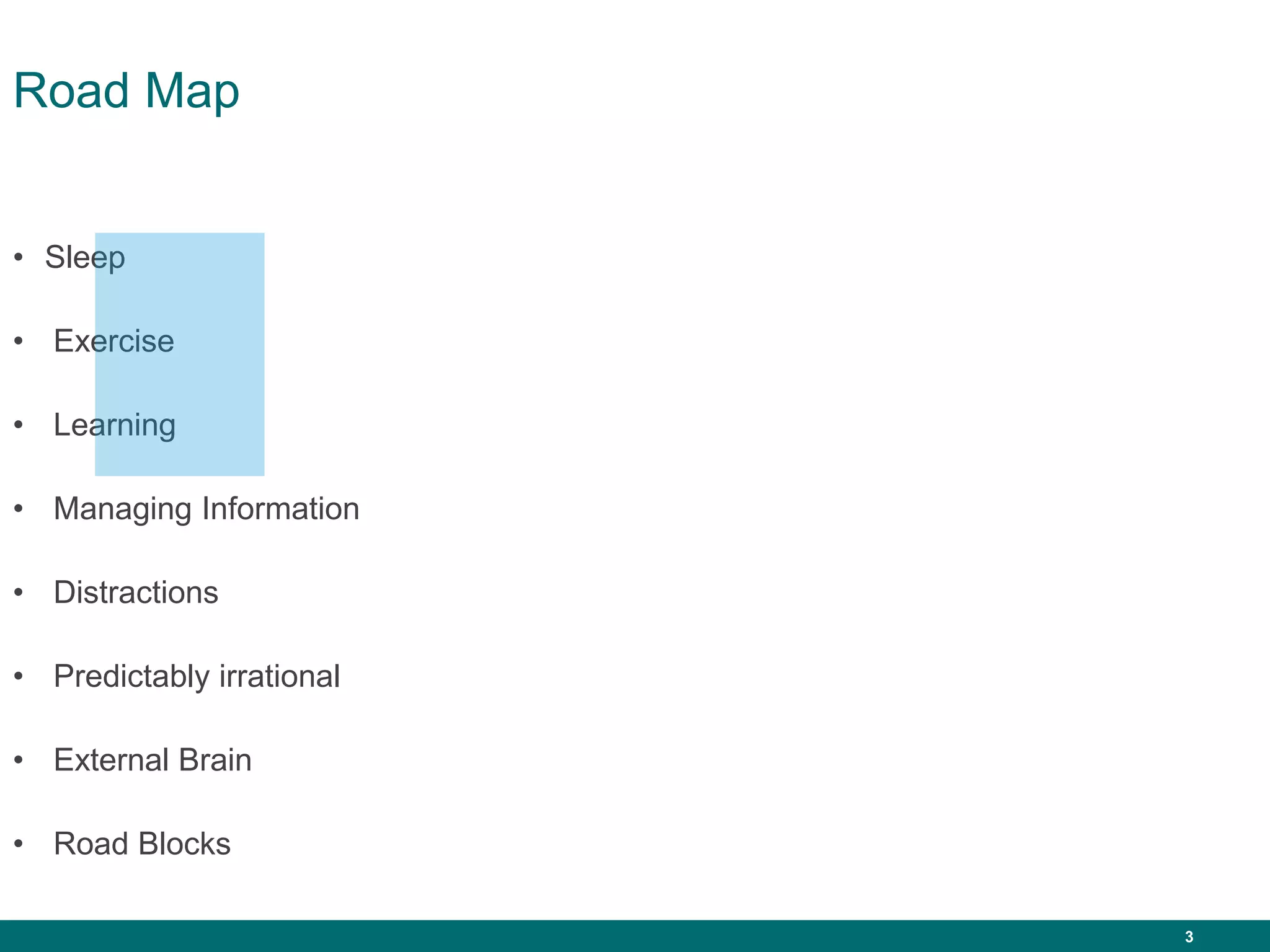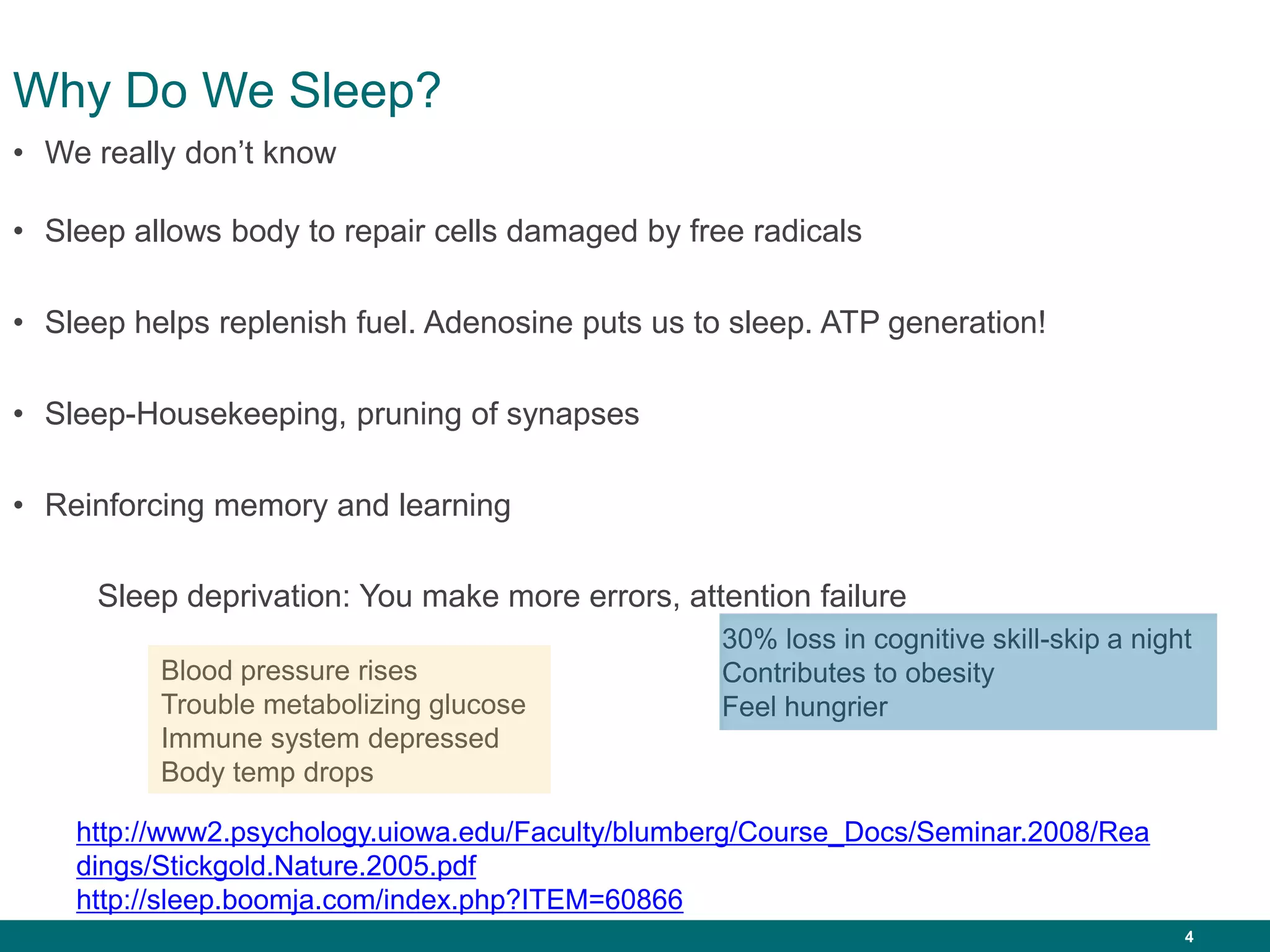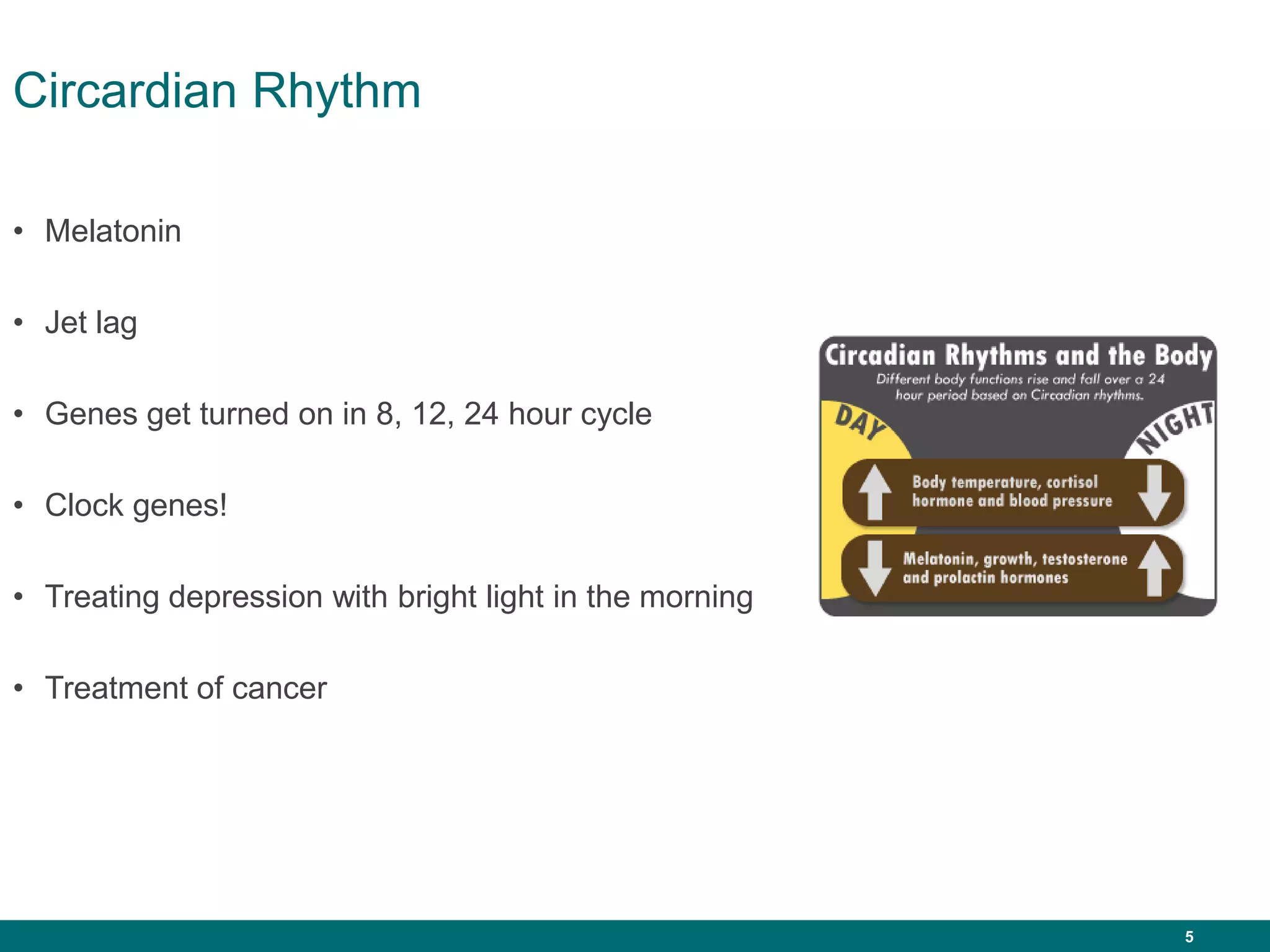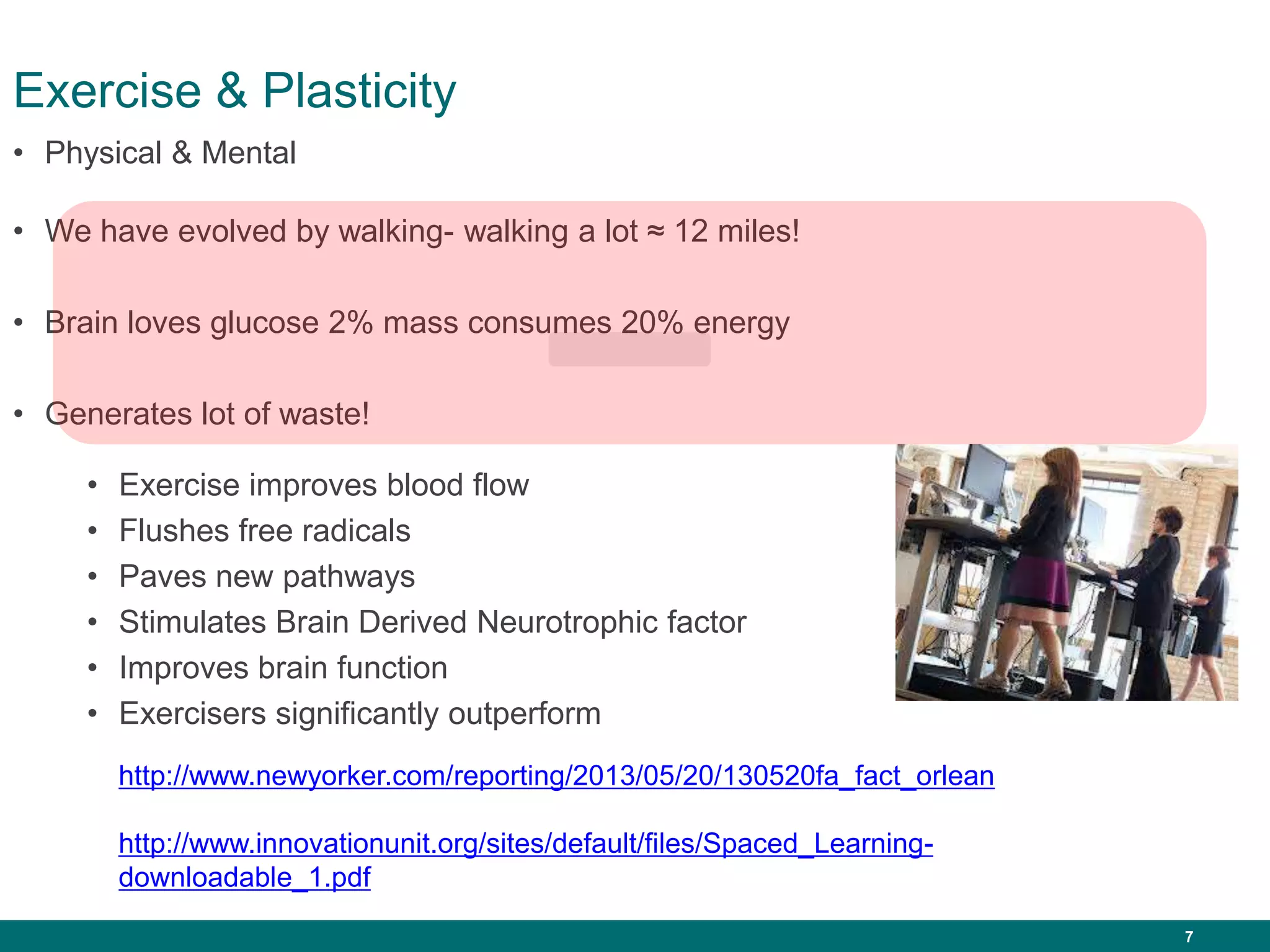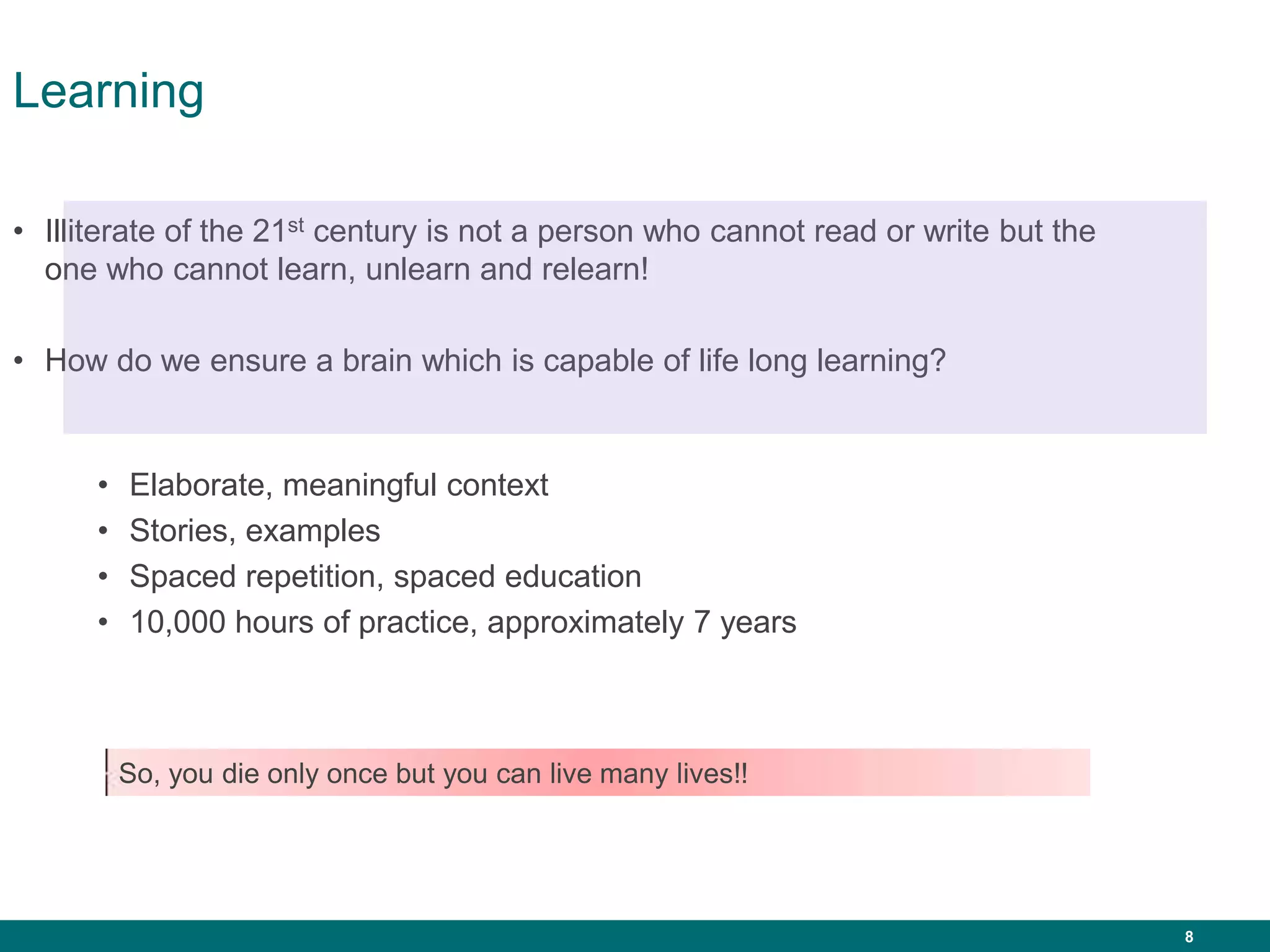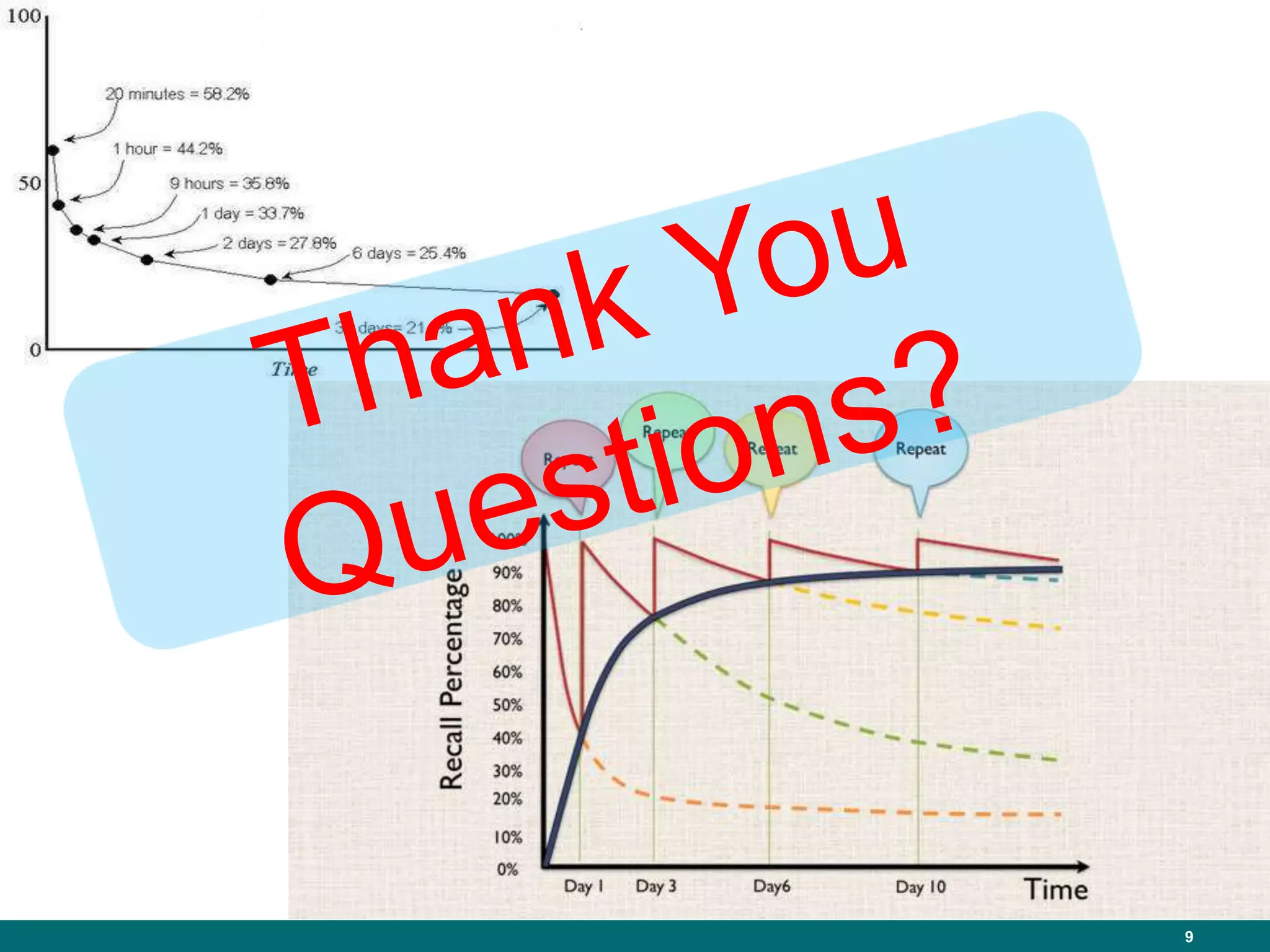The document discusses the importance of understanding brain function and its impact on learning, performance, and well-being. Key topics include the significance of sleep for cognitive function, the benefits of exercise for brain plasticity, and the importance of lifelong learning through adaptation and practice. It emphasizes that awareness of brain health can lead to improved personal and professional outcomes.
